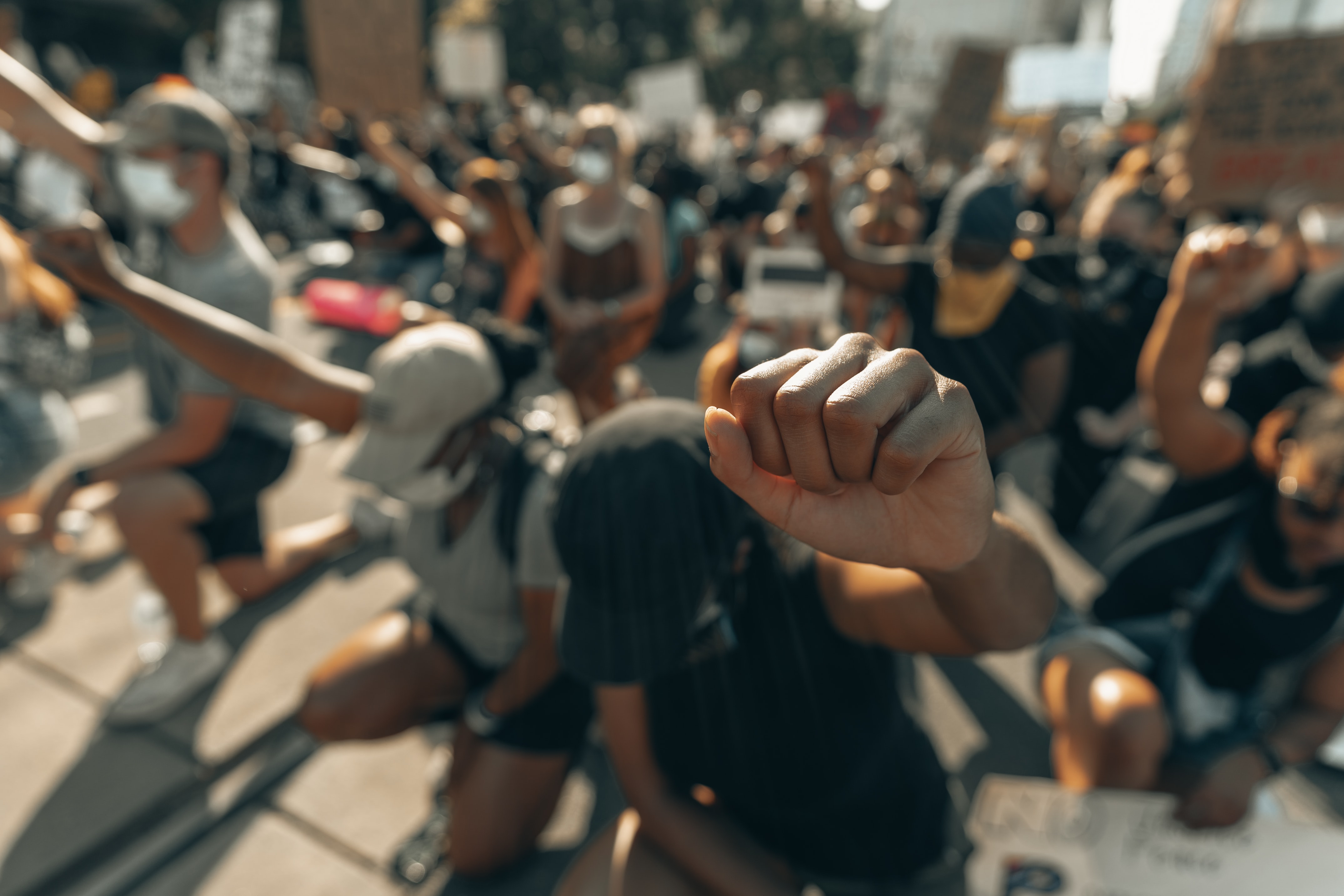One Year Later: George Floyd’s Impact on Press Freedom
On May 25, 2020 – Memorial Day – the name George Floyd was like millions of others in the United States. Unknown to most. Not widely memorialized in any notable way.
On that evening, however, a confluence of events would thrust the name George Floyd into the world’s public consciousness. It, and the man behind it, would become an international symbol for police abuse. For racial justice. It would spark a racial reawakening across the country and around the globe.
That evening, Floyd would die while in police custody, specifically after spending nine minutes and 29 seconds under the knee of Minneapolis police officer Derek Chauvin, one of four officers involved in arresting him for passing a counterfeit $20 bill at a convenience store in the Twin City’s Powderhorn Park neighborhood.
It is not hyperbole to say that what happened ignited a powder keg.
Demonstrations. Protests. Counterprotests. Riots. Not just in Minnesota, but throughout the United States and in many other countries.
Journalists, of course, were on the front lines of all of those events, to chronicle for an anxious public not just what public officials did in their name to Floyd, but what they were doing at events surrounding the resulting racial reawakening.
Unfortunately, according to the US Press Freedom Tracker, of which RTDNA is a founding partner, during the past year at least 415 journalists have been physically attacked at least 432 times. One hundred forty-five journalists have been arrested 152 times. Eighty-three journalists have had their newsgathering equipment damaged or destroyed on 104 occasions.
The arrests, of course, came directly at the hands of law enforcement. Many of the attacks and equipment damage were the result of police actions, too.
In the summer of last year, not long after Floyd died, RTDNA expanded the role of its advocacy efforts – created in 2017 to defend press freedom and defend against threats and assaults on journalists – to begin advocating even more strongly for journalists’ First Amendment-enshrined obligation to serve the public by seeking and reporting the truth.
Much of that work has happened in Washington, DC, where we have labored diligently behind the scenes to push for two key pieces of legislation that are now expected to be introduced in Congress this year:
- The Journalist Protection Act would make it a federal crime to assault a journalist while that journalist was in the process of reporting the news. The bill would give federal prosecutors the ability to prosecute anyone who assaults journalists, when local prosecutors decline to do so. It was originally introduced in the previous Congress but went nowhere in the Senate. RTDNA supports the Journalist Protection Act not because we believe reporters and photojournalists deserve special treatment. Rather, we support it because the public has a need to know what is happening in their communities, and journalists who are assaulted are impeded from reporting those facts.
- The Right to Record Police Act would make it unambiguously clear that citizens, including journalists, have a First Amendment-rooted right lawfully to record the activities of law enforcement officers, subject to reasonable time, manner and place restrictions. Presently, only half of the US courts of appeal have upheld the right to record police. Only some of the states, and some law enforcement agencies, have policies preserving this right. That’s why federal legislation is the appropriate approach to codifying this responsibility.
We urge you to help with these efforts by speaking to your senators and members of Congress, and to sign our petition in support of these bills.
In the end, of course, the ongoing national dialogue and resulting seismic shifts in public consciousness that intensified after the death of George Floyd one year ago are about much more than press freedom.
But absent a news media free to serve the public without being harmed or arrested, without citizens having an irrefutable right lawfully to record the activities of law enforcement, real change will be much more difficult, if not impossible.
And so will the never-ending but necessary endeavor to memorialize George Floyd.

